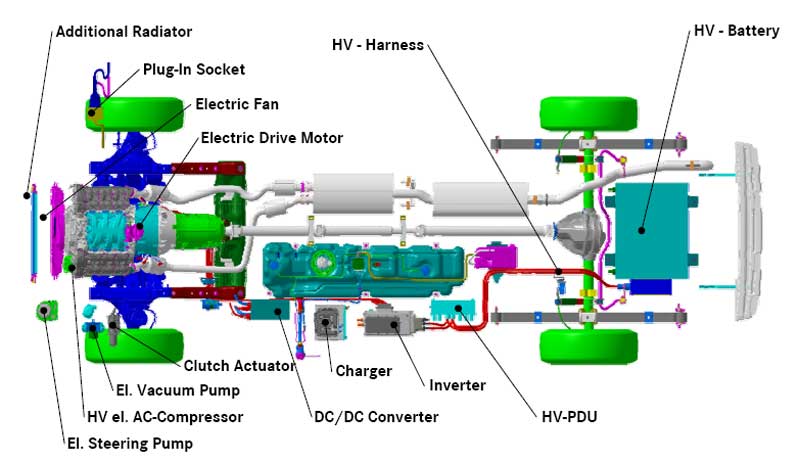Je Young Kim, GM of battery R&D at LG Chem, and his team have designed a cable-type flexible lithium ion battery based on hollow multi-helix electrodes. The spring-like, spiral incorporates the inorganic materials used in conventional lithium-ion batteries. The hollow multi-helix anode architecture is critical to the robustness under mechanical stress and facilitates electrolyte wetting of the battery components. This design enables the battery to reliably power an LED screen or an MP3 player even under severe mechanical twisting and bending. The LG Chem's cable battery prototype is described in Advanced Materials journal and comes less than a month after the USABC (United States Advanced-Battery Consortium)—an organization whose members are Chrysler Group, Ford Motor Company, and General Motors—awarded a $9.62 million advanced battery technology development contract to LGCPI (LG Chem Power) in Troy, Mich.

The competitively bid contract award is co-funded by the U.S. DOE (Department of Energy) and includes a 50% cost share by LGCPI. USABC awarded the contract to develop a self-contained, thermally-managed, lithium-ion battery pack system for Plug-in Hybrid Electric Vehicle PHEV applications. The 24-month LGCPI program will use cells that incorporate advanced cathode materials and a thermal management system that incorporates refrigerant-based cooling, integrated heating and high efficiency insulation. The program aims to make significant strides toward achieving the USABC goals for PHEV 40-mile battery pack system performance requirements while driving down the cost to automakers toward the USABC goal of $3,400. USABC is a subsidiary of the USCAR (United States Council for Automotive Research. Enabled by a cooperative agreement with the DOE, USABC's mission is to develop electrochemical energy storage technologies that support commercialization of hybrid, electric and fuel cell vehicles. As such, USABC has developed mid- and long-term goals to guide its projects and measure its progress. "We are pleased to announce the award of this contract to LG Chem Power Inc. as part of USABC's broad battery technology research and development programs," said Steve Zimmer, executive director of USCAR. "These programs are essential to advancing both near- and long-term goals that will enable a broad spectrum of vehicle electrification and make electrified vehicles increasingly affordable." The new contract is LG Chem Power's fourth with USABC, which previously awarded the company, under its former name, Compact Power Inc., three contracts - one in 2008 for plug-in hybrid electric battery technology development, one in 2006 and one in 2004 to develop lithium-ion battery technology for hybrid electric vehicle applications. The U.S. DOE's overarching mission is to advance the national, economic, and energy security of the United States. DOE's Vehicle Technologies Program works with industry, academia, and national laboratories to develop advanced transportation technologies that reduce the use of imported oil and increase its energy security. Electrochemical energy storage has been identified as a critical enabling technology for advanced, fuel-efficient, light and heavy-duty vehicles. LG Chem USABC Research & Markets Hybrids and Plug in Vehicles report